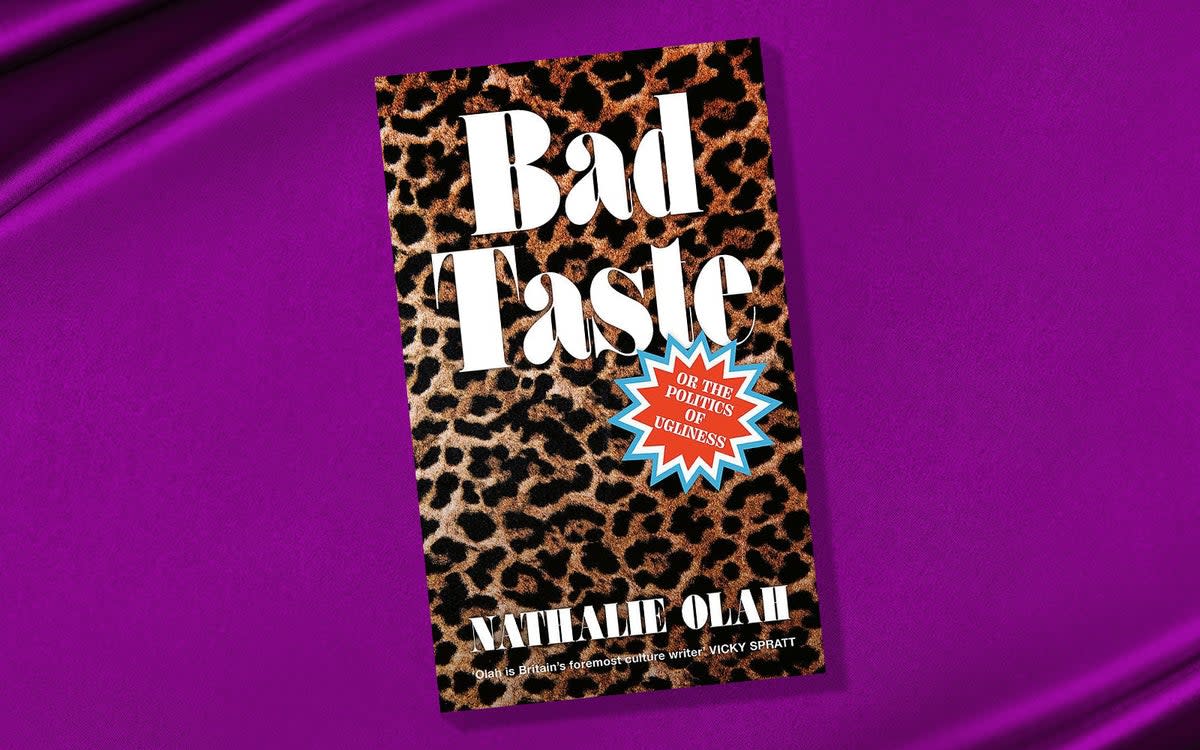Bad Taste by Nathalie Olah review: 'It encapsulates the feeling of being trapped by capitalism'

When I think about owning a flat, I dream about the colour I’ll paint the walls. Dark green, or deep blue, I’ll put an orange or maybe it’ll be a green corduroy sofa in the corner. I tell myself my eyes like the calm of dark colours. Someone I don’t know posts the development of their house renovation online. They show off the dark colours they’ve chosen to edge their door frames and I think – bold choice.
Following her debut, Steal As Much as You Can: How to Win the Culture Wars in an Age of Austerity, published three years ago, Nathalie Olah's second book investigates the importance we place on taste and the impact it has on our identities and how that in turn, informs our politics.

Olah sets out to expose the hierarchies which uphold what is "good" and "bad" taste. She breaks down seemingly innocuous choices – like what colour to paint your living room – into the sum of their parts. In the past, white paint had once meant wealth as it demonstrated enough disposable cash to keep pristine walls and a comfortable distance from the factories. Now, in the modern world, it means the opposite. "To rent [is] to be prevented from decorating and to keep one’s living space as unencumbered as possible for the sake of attracting the next round of tenants."
Subliminally, white walls have come to mean a faceless replaceability, absence, of a lack of ownership, while dark coloured walls announce your arrival to the property-owning class. When I read this section, I had to put the book down. My dreams of a dark-walled flat have not even come from me. I was struck by how porous this signalling was and how susceptible we are to the subliminal effect of capitalism and the more ancient need to belong. We are constantly communicating to one another that we are ‘inside’ and if ‘outside’ then we are conveying this too and to devastating effect. Was it at all possible to be original or authentic when even these qualities are consumed by the machine? And if it is not, how much autonomy over self, do we actually have? Olah asks this question and illuminates the invisible systems we have ascribed to, even unwittingly.
A study by the Resolution Foundation says that the 2008 financial crash "scarred" an emerging workforce where we were the first generation to have less opportunity than our parents. Olah deemed a book like this necessary because "the culture wars that had been confected by certain political leaders and amplified by the media had created a climate in which all of us had been reduced to our appearances and in a way that was impeding our ability to discern the truth." Taste can be used as "rules [or] code" which can then be weaponised against people, "the transformation of such basic sustenance as…a slice of grilled bread into objects of desirability …is possibly the most vivid expression of a crisis faced by a generation."
The transformation of such basic sustenance as a slice of grilled bread into objects of desirability is possibly the most vivid expression of a crisis faced by a generation
Nathalie Olah
Much of the book is a similar unravelling of the meaning of the objects we surround ourselves with, the story they tell about our position in the world and the systems which spring from them. Olah separates this out into seven chapters and analyses the root cause of anything we deem to like – handmade bowls, bread, experience culture, those very annoying blue workman’s jackets graphic designers like to wear, time being the new stealth-signifier of wealth, history, beauty, influencers, films and TV programmes are thrown together much like the world we live in.
I actually gasped when I read her analysis of a particular scene in the Sopranos where Tony is invited to his neighbour’s party and they insult his taste behind his back. When I watched the series (in lockdown) this scene pinpointed the crux of the class struggle felt by many first generation immigrants wanting to advance in a society that did not want to let them. It crystalised the fact that it doesn’t matter how much money you have, it is a certain intangible knowledge, taste, passed from generation to generation which you either ushers inside or leaves you outside, nose pressed to the proverbial glass.
This is a timely book, written in prose that just slips past you, in an informed and conversational manner. Olah dissects what taste is through an intersection of class, of belonging, success and how privilege disguises itself and the ways in which that reflects your position or locks you out of the worlds you want to enter. What you soon realise is that everything you think you are doing to avoid being influenced is an example of you being influenced – a book version of the cerulean blue scene from Devil Wears Prada. I enjoyed Bad Taste immensely. We’re trapped in a late capitalist hellhole and there’s no way out.
Bad Taste Or the Politics of Ugliness by Nathalie Olah (£15.99, Dialogue Books)

 Yahoo News
Yahoo News 
